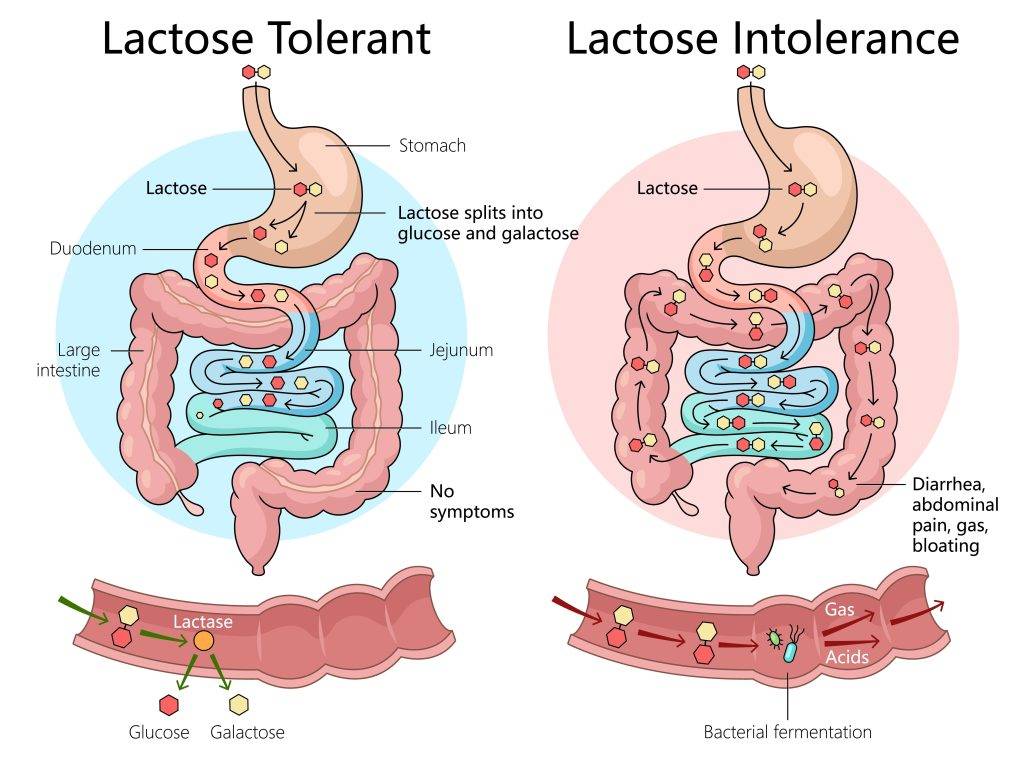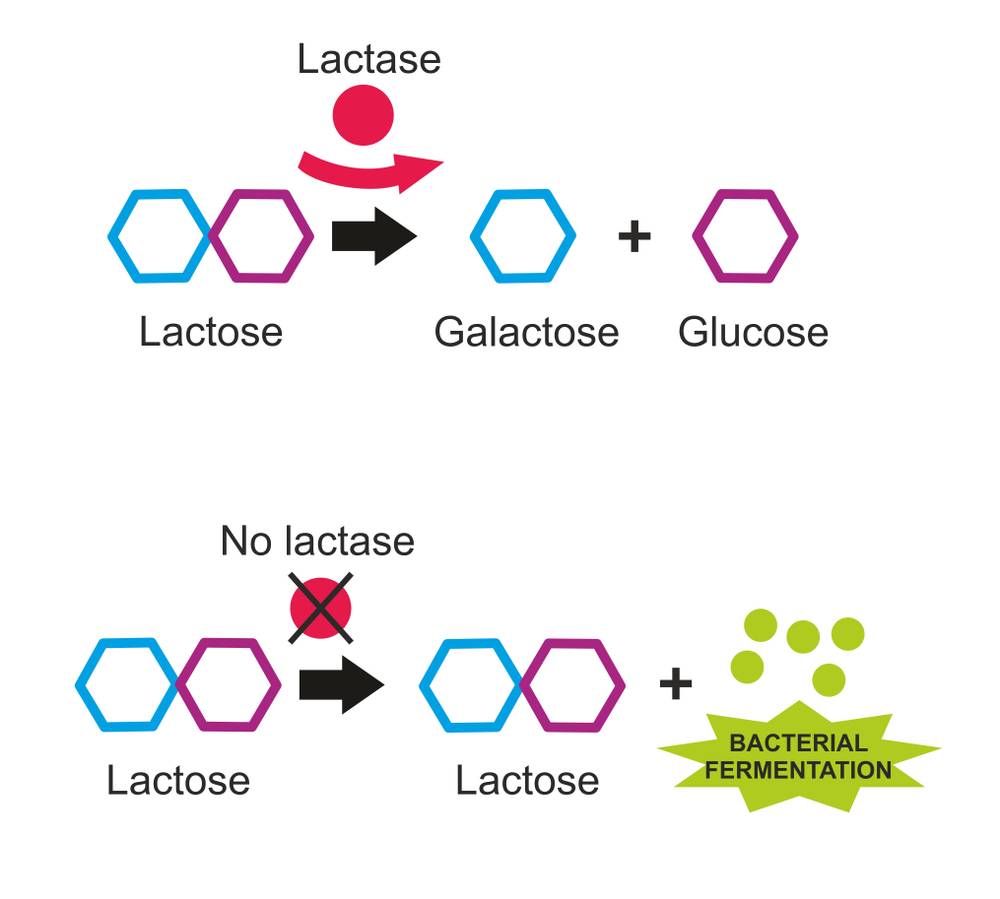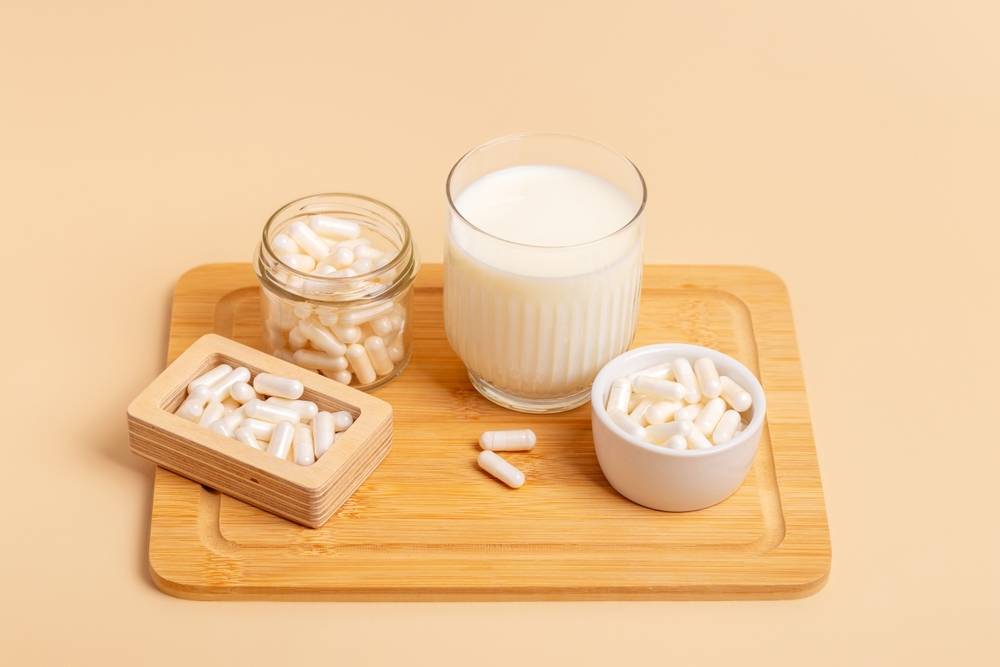For Ms A, a 24 year old marketing executive, the simple act of enjoying ice cream comes with strings attached – or rather, a mental checklist.
“I can’t casually eat ice cream for dessert anywhere,” she laments. “And if I do, it really depends how accessible I am to the nearest toilet”
Dining out is often a game of guesswork, trying to avoid hidden dairy in sauces or desserts. Even then, there are missteps. “Sometimes I eat something and my stomach hurts. It’s just a consequence of lactose intolerance.”
Despite the discomfort, Ms A admits to occasionally throwing caution to the wind. “Sometimes I just eat dairy on purpose and suffer.”
Lactose intolerance is one of the most common digestive issues, especially in Asia. But what if you could indulge in your favourite dairy-laden treats without suffering the bloating, cramps, and frantic dashes to the restroom? Enter lactase supplements – a lifeline for those who love dairy but hate the aftermath.
How Does Lactose Intolerance Work?
“What happens in patients who are unable to digest lactose or fructose is that they end up with these sugars creating gases, resulting in abdominal bloating, abdominal distention, gurgling, and potentially diarrhoea,” explained Dr Reuben Wong, a Gastroenterologist at GUTCARE Singapore.

This condition occurs due to a deficiency of an enzyme called lactase, which is necessary for breaking down lactose so it can be easily absorbed by the body. Instead, any unprocessed lactose will reach the colon and becomes fermented with the bacteria present there, resulting in the unpleasant gastric symptoms we would associate with lactose intolerance.
Watch more: Are You Lactose Intolerant? | Dr Reuben Wong
Asians & Lactose Intolerance

Lactose intolerance affects a staggering 90% of adults in Southeast Asia, making it one of the most prevalent digestive issues in the region. This contrasts sharply with Western populations, where only 10–20% of people are lactose intolerant.
Due to evolutionary and genetic reasons, after being weaned off milk as infants, many Asians gradually lose the ability to effectively digest the sugar typically seen in dairy-based products: lactose.
Interestingly, dairy hasn’t historically been a staple in most Asian cuisines. While Western diets are often rich in milk, cheese, and butter, traditional Asian dishes rely on soy-based alternatives like tofu, soy milk, and fermented products like miso. This dietary difference might explain why dairy tolerance hasn’t been as crucial in Asia.
But as globalisation brings pizza, lattes, and creamy desserts to the forefront, more people are encountering the challenges of lactose intolerance. And it’s not just obvious dairy products like milk or ice cream causing trouble. Lactose can hide in everyday items like bread, processed meats, and even chips, making avoidance tricky.
Thankfully, if you’re unable to resist a lactose-filled treat, at least any harrowing gastric event is normally fleeting, depending on how much of this sugar your body can withstand.
How Lactase Supplements Save The Day
Although it may be good for your digestive system to break away from dairy entirely, it means you might be missing out on vitamins and minerals crucial to supporting your health.
“I always tell my patients not to completely avoid dairy as it’s an important source of calcium and Vitamin D,” said Dr Webber Chan, a Gastroenterologist from Mount Elizabeth Novena Hospital, in CNA.
And while you can revert to vitamin supplements and other dietary sources to close any nutritional gaps, there is an alternative path you can take where you can still enjoy dairy-enriched foods and drinks – lactase supplements.
Lactase supplements help to alleviate the symptoms of lactose intolerance by providing the missing enzyme, thus enabling the body to easily digest the sugar.

However, don’t be too eager in grabbing a bottle of lactase supplements – for those with mild symptoms, reducing dairy intake might suffice.
“Research shows that most people with lactose intolerance can tolerate about 12g to 15g of lactose – or roughly one to two cups of milk,” shared Dr Chan. “If they still have symptoms after reducing lactose, I recommend they try lactase enzyme tablets.”
Incorporating Lactase Supplements Into Your Life
If you’re interested in adding lactase supplements to your health routine, then you’re spoilt for choice – they can come in capsule form, chewable tablets and even liquids. However, do make sure that the dose aligns with your tolerance level.
“Different brands offer various strengths of lactase enzymes to match different levels of lactose intolerance. If you have mild symptoms, a lower strength might be enough,” recommended Dr Chan.
“It is always advised to start at a low dose and increase the dose incrementally.”
In terms of when you should be popping a lactase pill, the best way to take it is right before your very first taste of dairy.
“This timing ensures the enzyme is present in the digestive tract at the same time as the lactose-containing food, allowing for optimal digestion,” explained Dr Kewin Siah, a Senior Consultant in the Division of Gastroenterology and Hepatology, at the Department of Medicine, National University Hospital.
“Taking it after eating might not prevent symptoms as the lactose may already have reached the colon.”
And on whether it is safe to consume lactase supplements every day, the answer is yes.
“It is generally safe to take lactase enzyme tablets with every meal containing dairy. However, make sure you follow the recommended dosage provided by the manufacturer,” clarified Dr Siah.
It is also advisable to consult a healthcare professional before you start on this supplement, as they can offer more personalised information on its suitability and recommended intake.
Can One Outgrow Lactose Intolerance?
Unlike some food allergies that can be outgrown, the body’s ability to produce lactase typically remains low throughout adulthood. In fact, symptoms may worsen over time, especially if dairy consumption continues without management strategies.
However, if your intolerance is caused by an underlying condition like a gastrointestinal infection, your symptoms may improve after the condition is treated. It’s also worth noting that children with temporary lactose intolerance – often due to infections or inflammation – may regain the ability to digest lactose as they recover.
For adults with long-standing lactose intolerance, the condition is unlikely to resolve entirely. That’s where lactase supplements can step in, allowing you to enjoy dairy without discomfort, even if your body never fully adapts.
A Future With Ice Cream And Milk Tea
For many, lactose intolerance means missing out on some of life’s simple joys – licking a scoop of ice cream, enjoying a warm cheesy slice of pizza, or drinking an extra large milk tea.
And with lactase supplements, Ms A no longer has to settle for a “No thanks” when cravings strike.
“Maybe I can try lactase supplements next time I’m eyeing a cheesecake,” she says
We include products we think are useful for our readers. If you buy through links on this page, we may earn a small commission.

